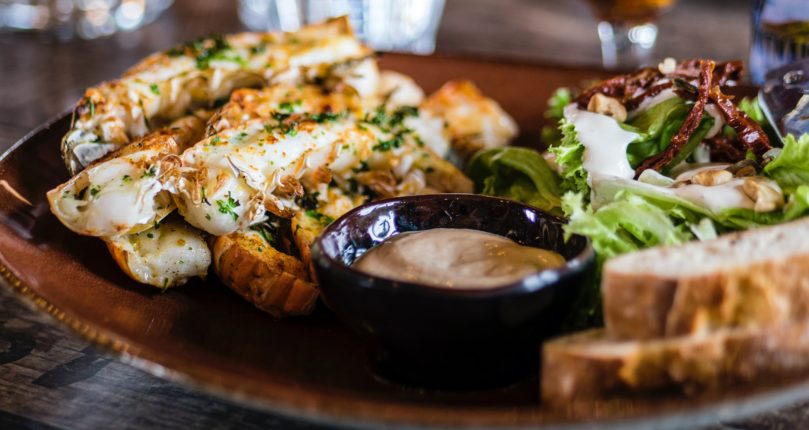One of the most well-known miracles of Jesus began with 5 small loaves and 2 small fish – the feeding of the 5,000 (John 6:1-15). Although 5,000 only accounted for the men present, not women and children. Scholars estimate the number fed was actually somewhere between 15,000 and 20,000.* Yet it all began with 5 small loaves and 2 small fish.
Five small loaves and two small fish. That’s all Jesus asked of this boy. He didn’t ask him to multiply the loaves and fish himself. He didn’t hold him personally responsible for the execution or reception of this miracle. All Jesus asked of this boy was to share his food.
And this boy didn’t have any stipulations for his giving either. He didn’t ask Jesus for compensation. He didn’t ask Jesus to transform the fish into dates, raisins, figs, or honey (the closest equivalents I can think of to candy in that day). He didn’t tell Jesus how he would like the fish and loaves to be used. He simply gave.
Oh, and did you notice, he is only referred to as “a boy?” His name is never mentioned. Not every miracle participant remained unnamed. The disciple who brought the boy to Jesus was Andrew. Elsewhere, when Jesus raised a man from the dead, he was mentioned by name – Lazarus.
This boy remains nameless to us, but not to Jesus and not to God. They knew his name. They knew his faith and his willingness to serve.
Just because he didn’t personally gain notoriety doesn’t mean he didn’t have a lasting impact. He was a participant in a miracle that brought notoriety and glory to God. And isn’t that where the focus should be?
But what if this boy hadn’t shared his lunch? What if he decided to keep it to himself? Or demanded he get the credit? He could have, but he chose not to. He chose to give all he had and place it in Jesus’ hands to do what he willed. That’s faith.
We too are faced daily with the same proposition – to offer what we have and see God use it. Our gifts. Our talents. Our skills. Our time. Without stipulations. Without demands.
Every day we perform 1,000’s of seemingly mundane tasks. Yet, we have an impact. We may never know the extent of that impact. All we know is that we are called to be willing and obey.
Everyday mundane tasks. Making meals. Doing laundry. Caring for our children. Making a phone call. Reaching out to a friend. Writing an encouraging note. Doing our job well.
These tasks in the hands of God are an investment. An outpouring of service and our hearts. An expression of love as we nurture and care for those with whom we have been entrusted.
We may never know the true impact of our actions, gifts, or talents. And that’s ok. We aren’t responsible for the outcome. Whether they are perceived as huge successes or failures (in our eyes or the eyes of our peers). Our greatest failures could be huge successes in God’s estimation. Our greatest failures could simply be redirecting us toward a better path.
Whether God decides to use us to feed 20,000 or 1 – He is still using US! And even if he feeds only 1 through us, that 1 mattered. That 1 is worth it.
So, let’s ignore facts and figures that measure success by the world’s standards. Let’s trust God and know he measures success differently. To God success could simply be our – “Yes.”
In the end, we are just called to do. To be willing to act and to obey. That’s all.
What a relief to know God doesn’t hold us personally responsible for every outcome. What freedom to know the outcome is not up to us. The outcome is always in God’s hands.
Every day we are asked by God to humbly give and do what we can with what we have been given. Whether that’s five small loaves and two small fish, our talents or our time. Let’s live in the freedom and confidence that we can trust God with all our outcomes. When we do that, we live with purpose. And we can be confident in the hands of God our gifts and talents will have a greater impact than we may ever realize.
*”What can we learn from Jesus’ feeding of the 5,000?” GotQuestions.org. https://www.gotquestions.org/feeding-the-5000.html
